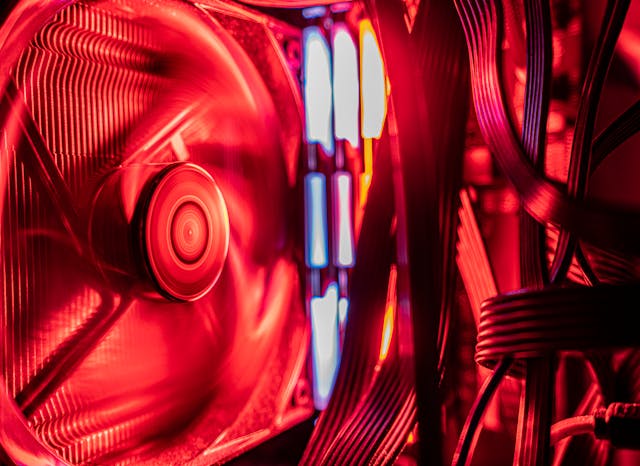Photo from Pexels
Until it breaks down on a warm summer day, you can easily ignore the air conditioner in your house. Quietly working in the background, an AC unit keeps your room fresh and pleasant. Still, after time, even the greatest systems need maintenance and repair. You want to handle such problems before a complete collapse occurs. Knowing when to call a professional will help you avoid more major issues, expensive repairs, or even a full replacement.
Strange Noises
An air conditioner should run very quietly. While running, you will hear a soft hum; harsh noises like grinding, rattling, or pounding allude to internal issues. Often indicating mechanical components, such as the fan or motor, these noises point to worn-out or loosening. Ignoring these sounds might cause significant damage should the machine keep running. Apart from the annoyance, unusual noises might also result from trash stuck in the unit. For instance, the friction created within the fan blades by twigs or leaves. Professionals can spot and fix these problems without running into further danger of consequences. Acting fast helps prevent little fixes from becoming more complicated ones.
Inconsistent Cooling
Your air conditioning system isn't dispersing air fairly when some rooms seem much warmer or colder than others. Clogged ducts, a broken thermostat, or an aged unit fighting to run can all cause this unpredictability. Should certain vents show reduced airflow, the issue might be a failed blower or ductwork leakage. From the compressor to the ducts, professional experts have the equipment to examine every component. They will decide whether the problem calls for replacement, sealing, or cleaning of parts. Correcting unequal cooling guarantees the effective operation of the system and increases comfort.
Energy Bills Are Increasing Rapidly
Your AC may be running more than it should if your power costs are increasing without any obvious reason. To get the same cooling effect, dirty filters, blocked coils, or worn-out parts drive the system to spend more energy. This growing burden over time results in needless damage that may need AC services. To restore effectiveness, an expert may do a thorough examination, clean, and tune-up. They will find hidden causes of energy loss, including inadequately insulated ducts or thermostat miscalibrations. Not only does regular maintenance lower energy expenses, but it also extends the life of your system.
Frequent Short Cycling
When your AC switches on and off frequently without finishing a complete cooling cycle, short cycling results. This tendency stresses the system, lowers energy efficiency, and makes constant interior temperature very impossible. Usually, the issue comes from filthy components, electrical problems, or too large systems. To fix short cycling, technicians can recalibrate your equipment or change electrical settings. They will also confirm if your system is appropriately sized for your house. A well-kept unit works without problems, therefore saving you from the annoyance of frequent disruptions.
Lingering Musty
Bad odors from your vents lead to certain AC system issues. Musty smells indicate mold or mildew forming in the ducting or on components from moisture accumulation. Conversely, burning odors indicate electrical problems, including overheated motors or frayed cables. Expert repair and cleaning removes these hazards. While electrical repairs remove fire threats, mold removal maintains safe air quality. Ignoring smells lets these problems get worse, so it's important to get aid at the first hint of danger.
High Humidity Levels
Control of interior humidity depends mostly on air conditioners. Your area isn't dehumidifying properly if it seems sticky or muggy, even with the AC running. Common causes of too high humidity inside are problems like unclean evaporator coils, insufficient refrigerant, or large systems. Technicians evaluate the state of your machine and provide fixes according to your demand. Their knowledge guarantees you take back control over your interior environment, from fixing broken components to upgrading to a system more fit for the size of your house.
Nearing the End of Its Lifespan
With good care, most AC systems survive ten to fifteen years. Systems age, though, and they lose efficiency and need more regular maintenance. Replacement can be the wisest course of action if you see a declining performance or are often calling for repairs. An expert assessment guides your decision on whether financially it makes the most sense to upgrade or repair your equipment. More recent systems provide enhanced performance, greater energy economy, and sophisticated technologies. Professionals can help you choose a model that will save long-term money and satisfy your demands.
Conclusion
Although your air conditioner keeps your house comfortable, its efficiency depends on your paying attention. Early warning indicators should be identified and acted upon quickly, not just to save money but also to help avoid unplanned failures. You guarantee that your system will run for many years to come by letting experts manage repairs and maintenance. Don't wait for the pain to start; the best approach to safeguard your investment and enjoy consistent cooling is to take early care of problems.





Comments